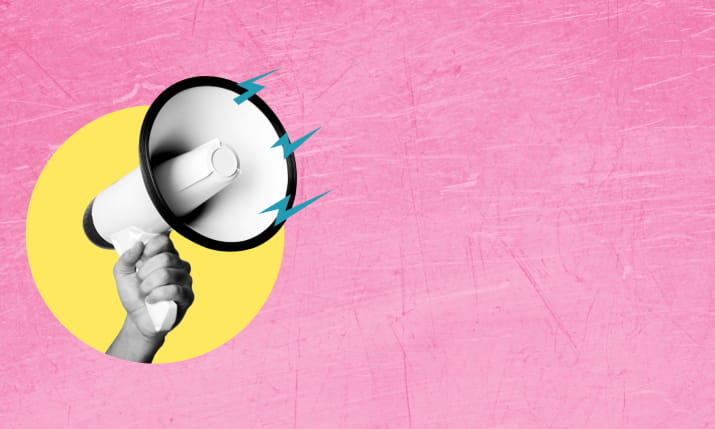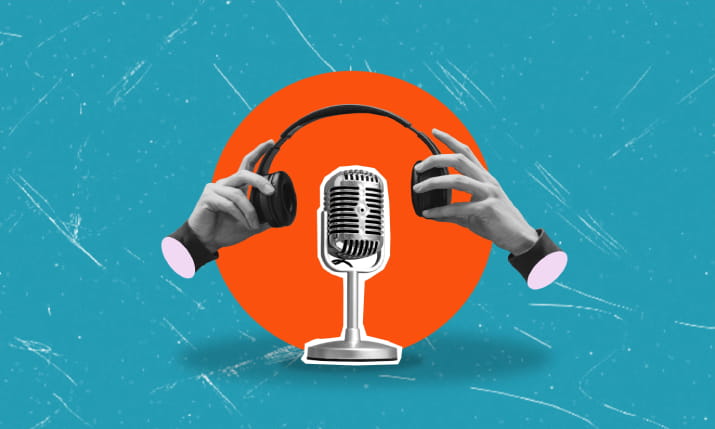Help: How do I start freelance copywriting?
Freelance writing gurus Rachel Smith and Lindy Alexander share their advice on getting your foot in the door and keeping it open.

What is freelance copywriting?
Copywriters write for a business-related purpose—persuading audiences to take action or to grow their affinity with a brand. Freelance copywriters are self-employed writers for hire, picking up these types of work on a project or contract basis.
It's worth noting that copywriting isn’t the only form of freelance writing available—there’s also content writing and feature writing.
Content writing, like copywriting, is written for a client or brand. The difference, which can sometimes seem blurry, is that content writing is meant to entertain or educate the reader, building trust so that the reader (hopefully) chooses the brand when a future need arises.
Now, stay with us. Feature writing is yet another type of writing—referring to long-form articles that cover a single topic in depth. Usually written for a newspaper or magazine, it uses storytelling devices to connect emotionally with the reader.
Most freelance writers are versed in some mix of the three. Rachel Smith, founder of Rachel’s List, a jobs board and goldmine of writing resources, provides content and copywriting services for clients like Westpac, Destination NSW and Village Roadshow. She also writes features for the Sydney Morning Herald and other consumer and trade titles.
Lindy Alexander, who created The Freelancer’s Year to help writers start freelancing and thrive, generally works in the feature writing and content writing space. Her articles have appeared in publications like The Guardian, delicious, and Travel + Leisure Southeast Asia.
Diversifying your skills to perform a variety of the above allows you to pitch for more projects, increasing your chances of landing writing work.
What does a freelance copywriter do?
Freelance copywriters write ads—headlines, body copy and taglines—these can be for digital (including websites and social media) or print. They also write scripts for tv, radio and video, email campaigns, brochures and website content.
A client will typically have a written brief with details on the desired message, audience and media channel. Your job is to translate the brief into persuasive, memorable turns of phrase that communicate clearly and are in the brand’s voice.
Freelance copywriters can either work with advertising and marketing agencies or directly with clients.
How do you break into freelance copywriting?
According to Lindy, start by figuring out the type of writing you’d like to do.
“Where do you envision your work being published or displayed? Do you have the desire to walk into a newsagent and see your article with your by-line on it? Do you love the idea of writing web copy? Or blog posts? What are you personally interested in—do you want to write about education, law, health, food?” she shares.
Rachel adds some further advice: to take a copywriting course of some kind.
“This gives you the initial skills you need to start taking on client projects. Most courses these days will include a private group where you can meet other course attendees. A good community is invaluable for helping you meet other writers, build relationships, pick up overflow work and learn about your craft and running a business. Rachel’s List offers that, but there are also lots of other similar Facebook groups or Slack channels,” she says.

How do you find copywriting clients?
We won’t lie—getting your first client isn’t easy. But there are small steps you can take right away.
“Finding clients is often about letting everyone in your network know that’s what you’re looking for. Tell your old school friends and people you run into in the street. Send letters of interest (LOI) to corporate clients,” says Lindy.
“Make sure your LinkedIn profile says that you’re a freelance writer. Share examples of your work, which you can house on Medium, a blog or even LinkedIn itself… these are free and fairly easy ways to market yourself,” she continues.
And of course, there are job boards, like Rachel’s List.
“We have a main list, where most jobs are posted, and this is behind a membership paywall. We also have a free entry-level list which gives you a taster of what Rachel’s List is all about. Any entry-level jobs are sent right to your inbox,” says Rachel.
When it comes to feature writing, Lindy thinks that opinion pieces or personal essays are the fastest avenue to getting published. “They don’t require you to interview anyone and you don’t need contacts. You’re using your experience to form the basis of the article,” she says.
“If something gets you hot under the collar, write a 600-word piece and send it to your state’s newspaper. It doesn’t have to be poignant. It can be funny. And it can even be about a tiny experience in your life,” she adds.
Once you’ve landed your first project, you’ll want to think about repeat business. According to Rachel, “To make yourself indispensable to clients, you need more than just excellent writing skills. I’d recommend learning about SEO best practice, digital marketing and how to offer strategy as a service.”
As always, maintaining relationships is key.
“If an editor at one organisation moves on, they’re probably moving to another role where they can assign you work. Plus, there’s the person who replaces them in their old position. Essentially, you have double the opportunity,” Lindy says.
How much does a copywriter make?
Talent.com states that copywriters in Australia make anywhere between $77,638 to $128,952 at the time of publishing. However, this is based on full-time, permanent roles with fixed salaries. With freelancing, there’s the possibility of earning a whole lot more, or less.
As a freelancer, your income will fluctuate—in some months, you might work all hours of the day (and night), in others, you’ll feel like all you’re doing is sending out LOIs. You’ll also spend a fair amount of time agonising over your freelance copywriting rates—are you charging enough, or too much?
Naturally, both Rachel and Lindy have created resources and written about this very topic to help you out. See Rachel’s Pay Rates Report here.
On The Freelancer’s Year blog, Lindy has put together a post detailing what she charges. She’s also written a series called The Month In Review, where she rounds up the work she did and how much she earned every month, from January 2017 until January 2020.
What else should I know about freelance copywriting?
Eventually, you’ll need a slick, user-friendly website showcasing your work!
“You should optimise your website for SEO, so you that you pop up in Google for the appropriate keywords, like ‘medical copywriter Sydney’, if that’s what you want to rank for. Clients want to see a polished portfolio when they’re engaging you for a project,” says Rachel.
You can also use AI to work smarter. Regarding ChatGPT, Lindy states, “My prompt engineering [entering prompts that will get the best suggestions out of ChatGPT] needs work but I find it useful for headlines or subject lines for pitches if I tell it what I want. I try to match my headlines to the publication’s style, like if they use puns, or two-word headlines… ChatGPT is really good for that.”
“I use AI for transcription. ChatGPT is good as a creative thesaurus. I use it to analyse headlines and sometimes as a brainstorming tool. In my book, anything that can help you become more efficient is worth experimenting with,” Rachel adds.
How do I learn copywriting (and the other types of writing you've mentioned)?
An online course is a great option to see if writing is really for you. Open Universities Australia offers degrees, short courses and single subjects, all delivered by leading Australian universities, online.
If you’re not ready for a full bachelor or masters degree, then a short, 10–16 week online course might be the ticket. Choose from an introductory course on creative and professional writing, writing for digital media (which includes podcasting), travel writing and many more.
Freelance writers tend to be extremely supportive and generous with their knowledge. So make sure to read blogs (and sign up to mailing lists) of writing thought leaders like Rachel, Lindy, Susan Reoch (UX writing-focused) and Kate Toon (specialty: digital marketing copy).
The best bit—you can do all of this while keeping your day job, at least until you have the confidence to take the leap and go fully freelance.
Browse thousands of courses from leading Australian universities.
Or complete the form on this page to chat to an advisor about study options.



